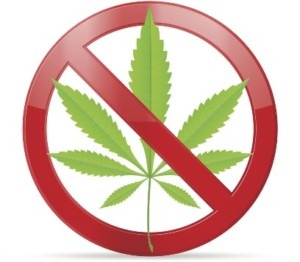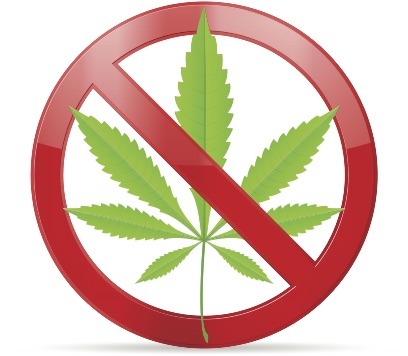Grace Hill Training Tip of the Week
Dealing with Marijuana in the Workplace
Marijuana possession is illegal under federal law. Pursuant to the Controlled Substances Act, it is classified as a Schedule I substance, which is defined as drugs with no currently accepted medical use and a high potential for abuse. According to the Office of National Drug Control Policy, marijuana is the most commonly used illicit drug in the United States.
However, thirty (30) states plus the District of Columbia have legalized marijuana either for recreational or medicinal uses. This conflict between federal and state law may create confusion in the workplace.

It is important to know that no state law requires employers to tolerate on-the-job marijuana use. Employers can legally maintain a drug and alcohol-free workplace and implement policies prohibiting the use of marijuana by employees and prospective employees.
One thing to keep in mind is that the passage of new laws in some states means that it is much easier for people to buy marijuana and in many different forms. Instead of smoking, some people are using oils and creams as well as eating marijuana-laced products such as candies and brownies (known as edibles).
This can cause problems as it can be difficult to know if someone is eating a regular brownie or a marijuana-laced brownie. And you may need to be more aware of changes in behavior and performance, which could be indicators of marijuana use.
Like other drugs, marijuana affects different people in different ways. This can depend on size, weight, and personality, as well as the amount consumed and their environment.
Behaviors to look out for in co-workers include:
- Short-term memory problems
- Loss of concentration
- Decreases in reaction time and alertness
- Difficulty learning new skills
So, what does this mean for you? Here are some tips:
-

Review, maintain and enforce consistent and clear drug and alcohol-free workplace policies. If you think a co-worker’s behavior might be an indication of substance abuse, follow your company’s policies and procedures for addressing the situation.
- It’s important to remember, however, that not all performance problems in the workplace are a result of substance abuse. There could be other causes for changes in behavior. Try not to jump to conclusions.
- If you believe you have a substance abuse problem, talk to your supervisor, and seek counseling and rehabilitation if necessary.
- Pay particular attention to your company’s policies on drug testing. In most states, employers can still choose to test employees for marijuana use, even if the use occurred legally outside of the workplace. It remains an employer’s right to enforce a drug-free workplace.
Most people want to feel healthy, safe, and productive at work. Knowing your role in reducing substance abuse can improve the health and well-being of everyone in your workplace.


